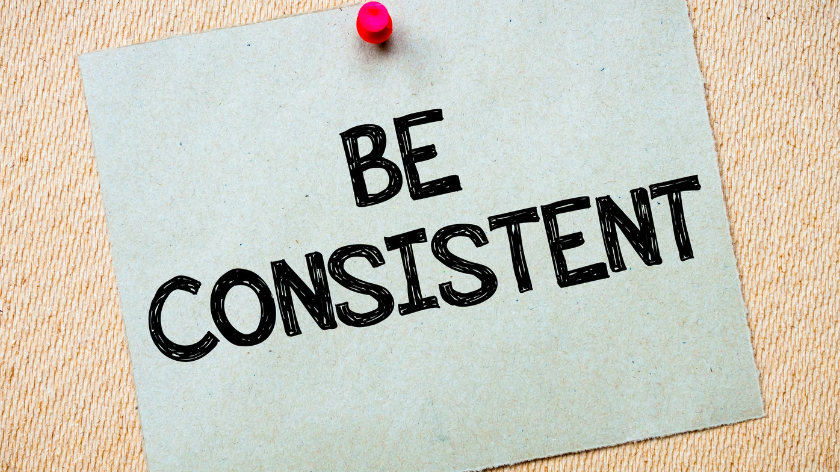
So many business owners find social media frustrating. That’s no surprise. It’s time consuming. You need to have so many different skills because it involves so many different elements. It never stops and people expect you to be always on. And it’s constantly evolving so it can feel overwhelming.
But the main reason we see business owners get frustrated is because they just aren’t seeing the results they want. They get tumbleweed on their posts. They aren’t growing their accounts despite their best efforts.
So why isn’t social media working for you? It’s likely because you’re making one, more, or all of these mistakes.
1. You aren’t giving your audiences what they want
To make social media work for your brand you need to understand your audiences on a deep enough level to get them to engage with you. The social media algorithms favour accounts that see audience engagement, particularly comments and conversations. This means using language and messaging that resonates with them, sharing relevant content that they want to see in the format they want to see it, and to get this right you must know your customer.
All too often brands tell us they are targeting “everyone between the ages of 18 and 80”. But if you’re targeting everyone you’re targeting no one.
Ultimately, you should be adding value to your audiences and you can’t do that if you don’t understand them on a deep enough level.
2. You’re talking about yourself too much
Most brands are getting social media all wrong. Social media is social, which means listening as well as talking and building real relationships in a genuine way. And you can’t do this if you’re just broadcasting marketing and sales messages to push your products and services. If you are purely focused on selling on social media you’re missing the whole point.
To be successful at social media marketing you need to have a sociable brand that has a diverse and effective range of topics that you post and converse around consistently. And this isn’t a list of your products/services and what’s good about them. For example, a swimwear brand might share content and engage in conversations around body image, body positivity and beauty. If you’re just broadcasting marketing and sales messages encouraging people to buy from you then you’re sure to fail. People will unfollow pushy accounts.

3. Your accounts have no personality
Research shows that people will unfollow accounts that have no personality. So be wary of being boring and overly professional. There are now more ways than ever to get your personality to show on social. Stories formats, for example, provide you with a host of creative content options and elements like stickers, quizzes and polls to let your customers see the personality behind the brand. Even if you’re a more serious brand like an accountancy firm targeting small businesses, this doesn’t mean you can’t be more human. Put the social into social media.
4. You are leaving people hanging
The social media algorithms like it when posts get a lot of engagement and particularly when conversations happen on posts.
Too many brands have discovered scheduling tools like Buffer and Hootsuite and just push out content without then jumping on to react to anyone commenting on that content.
To have conversations you need to respond to your audiences and respond quickly because people expect an immediate response and if you leave it too late they often over it by the time you respond.
The Digital Mums’ team members have also had experience of engaging with brands on social and getting nothing back. Tumbleweed. The absolute minimum you should do is to respond to every single person that converses with you but the ideal is to build on those comments to engage and create a conversation to result in real relationships with your customers.

5. You’re inconsistent
Consistency is key on social and this goes for a number of different areas.
It’s important that your platforms have a consistent brand both visually but also in terms of your marketing copy and messaging.
It’s important that you talk about similar things in the same way so you have a consistent brand and you’re communicating that brand to your audiences. So in the swimwear example above it would be very confusing if the brand suddenly started posting about sport.
It’s also crucial to stick to a consistent posting scheduling. Don’t post ten times in one day and then not again for a week. Plan out a manageable schedule that aligns with optimum posting guidance. The same goes for creating content. It’s much better to craft a brilliant piece of content that goes out quarterly without fail than to push out loads of content for one month and then nothing for 6 months.
6. You’re on too many platforms or the wrong platforms
One of the biggest challenges that small businesses and charities have is that they don’t have a lot of time to spend on social media marketing. To run a social media platform properly you need to invest between half a day and a day of time every single week depending on which platform and your content strategy.
There are so many tasks involved in effective social media marketing.
Daily tasks include keeping up with optimum posting, finding and using relevant hashtags, proactive and reactive relationship building, engaging with smaller influencers, monitoring brand mentions and handling customer services.
Weekly tasks include crafting effective marketing copy, finding relevant content, creating relevant content whether photographs, graphics or video, scheduling content and accessing analytics and insights to track what’s working and what’s not working.
All too often we see brands setting themselves up on Facebook, Twitter, Instagram and LinkedIn and they spread themselves too thin and aren’t managing any of them well. We advise being on just one or two platforms and really focusing on making those work for you.
It’s also possible you’re on the wrong platforms.
It doesn’t matter how much you love Instagram if your target customers are over 50 this probably isn’t the platform to invest in. Prioritise the platforms where your customers spend the most time.
7. You’re not tracking metrics to learn what’s working
When we poll our audiences to find out how many small businesses and charities are tracking the metrics on their tweets and posts, it’s shocking how few are. Accessing social media platform analytics on a regular basis is absolutely essential. Otherwise, brands are just “spraying and praying” – pushing out tweets and posts willy nilly without any sense of what’s working and what’s not working. This wastes effort, time, money and means you’ll never nail your social media marketing efforts.
Each social media platform provides you with detailed data on every one of your tweets and posts. When you access this data you can learn things like:
- What content gets the most engagements and which drives the most conversations.
- Which days and times get the most engagement because your audiences are online.
- Which hashtags work to build awareness and engagement.
8. You’re focusing on the wrong metrics
The one exception to the above is that brands always track follower numbers. They obsess over how many followers they have and don’t even look to see if they are the right followers – whether their followers fit the demographics of their ideal customer.
In fact, we know of brands that are so obsessed with this they buy followers. We’ve had our students and graduates work with small businesses with thousands of followers only to find on closer inspection that they aren’t the right age or gender and live in a country that the brand doesn’t operate in. Suspiciously they also all started following the account at the same time and don’t engage.
We also know of brands that employ dodgy automated techniques to gain followers quickly, such as mass following then unfollowing accounts or using bots that leave automated messages on relevant hashtags.
We also see brands get really excited about the engagement and followers they get after sharing funny memes and videos. But as these have nothing whatsoever to do with their brand – what does a skateboarding French Bulldog have to do with small business accountancy for example – the engagement they get is meaningless as it’s not from their potential customers.
All of the above tactics are done to the detriment of their overall social media marketing strategy. At best they aren’t reaching out to the right people in the right way. At worst they are using tactics that could get their account suspended.
9. You’re not doing any other marketing
Social media works best when it fits into your overall marketing strategy. All too often, we have worked with brands that have big expectations around their social media marketing efforts but it’s the only area of marketing they are investing in.
- They haven’t created a marketing funnel with a clear understanding of the customer journey and the role social media plays within this.
- They aren’t investing in other acquisition channels like social advertising or search marketing and they expect organic social media to drive all the website traffic they need.
- They haven’t optimised their website so if social media drives traffic customers aren’t converting when they get there.
- They aren’t investing in creating great content that moves customers through their funnel.
- They aren’t making the most of email marketing.
- They aren’t complimenting their organic social media marketing with paid social advertising. Paid social is the place to push your sales messaging, products and services. It’s amazing what you can achieve with just a few hundred pounds a month. Brands should have an advertising budget to complement their organic social media marketing efforts.
To make the most of social media for a business, it’s useful to ensure your social media strategy is aligned to your marketing strategy and that you aren’t expecting to grow your business purely using organic social media.
10. You aren’t investing in building the skills needed to make social work for you
Social media marketing is a complex area of marketing and if you have no marketing background, ask yourself the following questions:
- Do you know how to craft customer personas to place your audience at the core of your efforts?
- Can you design the right sociable brand to engage your customers?
- Do you know how to build earned relationships with influencers?
- Are you confident designing your content strategy?
- Do you understand how social media algorithms work so you can align your tactics around them?
- Do you know how to build an effective social media marketing funnel?
- Do you know how to track metrics to see if you’re efforts are working?
- Do you understand how each platform requires a unique strategy aligned to how that platform works?
If you answered no to some or all of the above questions then you’re unlikely to see results from social media marketing because you don’t know how to do it properly.